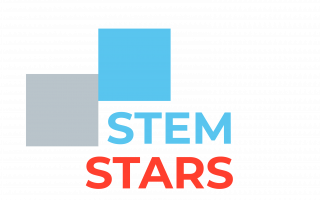Athens and Yale universities building bridges of cooperation

Could the coronavirus pandemic, the sea-change effect it has had on the world as we know it, and its devastating toll of more than 4 million lives have been predicted? What does science need to focus on to bolster environmental health? Does this world have the tools it needs to deal with a new pandemic in the future?
Researchers from the US heavyweight Yale and Greece’s University of Athens (UoA) are exploring such questions and building bridges of cooperation with the creation of a joint Center of Excellence and joint undergraduate and postgraduate programs. These are initiatives that further the objective of making Greek universities more extroverted, with multiple positive effects for the state and for Greek businesses in fields related to the environment and public health.
More specifically, the two universities have a signed a memorandum of understanding, and behind the initiative are two Greeks. On behalf of Yale, Vasilis Vasiliou is a professor of epidemiology and chair of the Department of Environmental Health Sciences – but also proof of the value of having Greek scientists abroad. On the UoA side, it’s professor of analytical chemistry Nikolaos Thomaidis.
Explaining the different facets of the partnership in recent comments to Kathimerini, Thomaidis said that the two programs being designed are an undergraduate course on environmental science and public health and a postgraduate program on environmental health. The program will provide graduates with a double (Yale and UoA) degree, will be conducted in English, and will also carry tuition fees. The aim is to attract students from around the globe, starting in the 2022-23 academic year. The two universities will also organize summer sessions, seminars and lectures on environmental health.
In the meantime, the UoA and Yale are also working together on developing a Center of Excellence for environmental and public health studies that will engage research teams at both universities. The center will examine issues like pandemics, climate change, autoimmune diseases and others. In the meantime, researchers are already working together on the issue of Covid-19 and have submitted their first papers.
The researchers will seek ways of dealing with the negative impact of things such as environmental pathogens on humans and on the ecosystems they rely on. One of the center’s chief aims is for the science it generates to translate into policy for addressing the complex problem of environmental health and related future challenges. The coronavirus pandemic is, of course, drawing the most interest right now.
The center will also organize educational activities that will include research initiatives and programs in the areas of its purview. Student exchanges will take place at the graduate and postgraduate level, including during the research phase of doctoral and postgraduate theses. In addition, there are plans to develop new teaching departments in the areas of environmental health, epidemiology, exposure science, analytical chemistry and advanced analytics, according to the agreement between the UoA and Yale.
The impact of the UoA-Yale partnership beyond the two institutions is also regarded as extremely important. Specifically, academics from both sides will seek to establish international partnerships in the fields of environmental and public health sciences. This will expand the existing synergies developed by the two universities in these research fields with many national and international universities, with the Greek ministries of Education, Innovation Research, Environment, and Agriculture and Food, as well as with major international and international corporations active in these fields.
At the same time, cooperation is already close on methods of predicting the transmission of the SARS-CoV-2 virus through the epidemiological analysis of wastewater, assessing the risk to humans of exposure to different chemicals and the effects of chemicals on certain diseases, such as childhood asthma.





